About Lund
Addiction-related services offered at Lund – Residential Treatment include mental health assessment and counseling, residential drug and alcohol rehab, outpatient programs, and aftercare.
Mental Health Assessment and Counseling
Mental health assessments evaluate an individual’s symptoms to determine the severity of substance use disorder and the presence of any co-occurring mental health disorders. The clinician uses this information to create a customized treatment plan, which may include individual, group, and/or family counseling.
Residential Substance Use Disorder Treatment
Inpatient treatment programs begin with a mental health assessment and individualized treatment plan. Typically, clients can expect to attend individual and group counseling, educational workshops, relapse prevention, family therapy, and skill building.
Intensive Outpatient Program (IOP)
Outpatient is for individuals who need addiction treatment, but don’t need 24-hour care. Typically, participants attend individual and group treatment sessions several days a week which includes individual therapy, group sessions, skills workshops, mental health support, and experiential therapies.
Aftercare
Before discharge, clients meet with a drug and alcohol counselor or therapist and develop a relapse prevention strategy, aftercare plan and arrange periodic follow up appointments.
Latest Reviews
Rehab Score
Gallery
Other Forms of Payment
Self-pay involves paying for treatment out of your own pocket. You can use savings or credit, get a personal loan, or receive help from family and friends to fund your treatment. If you don't have insurance or your insurance plan doesn't cover a specific program, self-pay can help ensure you still get the care you need.
Financial aid can take many forms. Centers may have grants or scholarships available to clients who meet eligibility requirements. Programs that receive SAMHSA grants may have financial aid available for those who need treatment as well. Grants and scholarships can help you pai for treatment without having to repay.
Medicare is a federal program that provides health insurance for those 65 and older. It also serves people under 65 with chronic and disabling health challenges. To use Medicare for addiction treatment you need to find a program that accepts Medicare and is in network with your plan. Out of pocket costs and preauthorization requirements vary, so always check with your provider.
Medicaid is a state based program that helps lower-income individuals and families pay for healthcare. Medicaid covers addiction treatment so those enrolled can use their coverage to pay for rehab. When a program accepts Medicaid the client often pays very little or nothing out of their own pocket.
Addiction Treatments
Levels of Care
Outpatient Programs (OP) are for those seeking mental rehab or drug rehab, but who also stay at home every night. The main difference between outpatient treatment (OP) and intensive outpatient treatment (IOP) lies in the amount of hours the patient spends at the facility. Most of the time an outpatient program is designed for someone who has completed an inpatient stay and is looking to continue their growth in recovery. Outpatient is not meant to be the starting point, it is commonly referred to as aftercare.
Inpatient rehabs offer intensive clinical supervision and high-level care in alignment with the specialized needs of clients who are in early recovery, exiting detox, or experiencing crisis. Clients in inpatient care reside at the treatment facility with round-the-clock access to medical and mental health care. They engage in extensive addiction counseling, which may include family and group therapy sessions. Inpatient treatment also frequently involves recovery-focused life skills training. Many programs feature holistic therapies, such as meditation, as well.
Rehab aftercare programs approach recovery as a life-long process that requires robust, individualized, and ongoing care. Clients in drug rehab aftercare have typically completed detox and intensive inpatient treatment and are weeks or months into their recovery journey. These programs are designed to promote clients' continued sobriety through a comprehensive portfolio of services aligned with the clients' evolving needs. Peer coaching, career counseling, and relapse prevention services are standard in these continuing care programs.
12 step programs strongly prioritize peer coaching and personal growth, creating a standard emulated by many treatment centers. Spiritual principles define the 12 step recovery paradigm and are designed to help participants address the root causes of their addiction, accept personal responsibility for their life choices, and relinquish control over that which cannot be changed. Participants regularly attend group meetings, which are free, peer-directed, and anonymous. They also select sponsors to mentor them in their recovery.
Rehab centers often provide intervention services to help facilitate smooth transitions to treatment. These services help families plan drug interventions in Vermont that are designed to encourage a loved one to get the help they need. Intervention services also help family members get the recovery services they need, regardless of whether the intervention convinces the individual to enter rehab.
When you enter 24-hour clinical care in Vermont, a medical team monitors your health and is on-site to intervene quickly if any severe withdrawal symptoms occur. Due to the nature of some drug withdrawals, life-threatening symptoms are possible, so this level of care is highly recommended during the detox process. This level of care also helps meet other medical needs, as well as provide mental and emotional support through professional counseling.
Drug and alcohol addiction often takes a heavy toll on one's body. Over time, a physical dependence can develop, meaning the body physiologically needs the substance to function. Detox is the process of removing drugs and/or alcohol from the body, a process that can be lethal if mismanaged. Medical detox is done by licensed medical professionals who monitor vital signs and keep you safe, healthy, and as comfortable as possible as you go through detox and withdrawal.
Treatments
The goal of treatment for alcoholism is abstinence. Those with poor social support, poor motivation, or psychiatric disorders tend to relapse within a few years of treatment. For these people, success is measured by longer periods of abstinence, reduced use of alcohol, better health, and improved social functioning. Recovery and Maintenance are usually based on 12 step programs and AA meetings.
A person with substance dependence can achieve recovery through drug rehab in Vermont. Professional staff provide a combination of interventions that are designed to help you attain and maintain abstinence from drugs.
Many of those suffering from addiction also suffer from mental or emotional illnesses like schizophrenia, bipolar disorder, depression, or anxiety disorders. Rehab and other substance abuse facilities treating those with a dual diagnosis or co-occurring disorder administer psychiatric treatment to address the person's mental health issue in addition to drug and alcohol rehabilitation.
A combined mental health and substance abuse rehab has the staff and resources available to handle individuals with both mental health and substance abuse issues. It can be challenging to determine where a specific symptom stems from (a mental health issue or an issue related to substance abuse), so mental health and substance abuse professionals are helpful in detangling symptoms and keeping treatment on track.
Opioid rehabs specialize in supporting those recovering from opioid addiction. They treat those suffering from addiction to illegal opioids like heroin, as well as prescription drugs like oxycodone. These centers typically combine both physical as well as mental and emotional support to help stop addiction. Physical support often includes medical detox and subsequent medical support (including medication), and mental support includes in-depth therapy to address the underlying causes of addiction.
Programs
Adult rehab programs include therapies tailored to each client's specific needs, goals, and recovery progress. They are tailored to the specific challenges adult clients may face, including family and work pressures and commitments. From inpatient and residential treatment to various levels of outpatient services, there are many options available. Some facilities also help adults work through co-occurring conditions, like anxiety, that can accompany addiction.
Young adulthood can be an exciting, yet difficult, time of transition. Individuals in their late teens to mid-20s face unique stressors related to school, jobs, families, and social circles, which can lead to a rise in substance use. Rehab centers with dedicated young adult programs will include activities and amenities that cater to this age group, with an emphasis on specialized counseling, peer socialization, and ongoing aftercare.
Recovery is most successful when clients feel accepted and validated by their peers and treatment providers. Facilities that offer LGBTQ-inclusive programming are committed to creating a safe space where everyone can grow and recover without fear of judgment or discrimination. They will have dedicated policies in place to create a safe and supportive environment that fosters free expression.
Clinical Services
During cognitive behavioral therapy in Vermont, you may set SMART goals, engage in guided discovery, journal, and participate in cognitive restructuring. These activities help change patterns of thinking and behavior to address substance use and mental health disorders effectively.
Group therapy is any therapeutic work that happens in a group (not one-on-one). There are a number of different group therapy modalities, including support groups, experiential therapy, psycho-education, and more. Group therapy involves treatment as well as processing interaction between group members.
Using a personalized approach for drug addiction treatment allows your therapist to tailor interventions in your individual therapy sessions to your unique circumstances. During your one on one sessions, you explore the underlying causes of addiction and develop effective strategies to manage cravings, improve mental health, and ultimately achieve long term recovery.
The core principles of motivational interviewing are acceptance, compassion, partnership, and evocation. This collaborative process offers a nonjudgmental environment where the therapist expresses sympathy, highlights the client's strengths, and empowers them to explore necessary change.
Trauma therapy addresses traumatic incidents from a client's past that are likely affecting their present-day experience. Trauma is often one of the primary triggers and potential causes of addiction, and can stem from child sexual abuse, domestic violence, having a parent with a mental illness, losing one or both parents at a young age, teenage or adult sexual assault, or any number of other factors. The purpose of trauma therapy is to allow a patient to process trauma and move through and past it, with the help of trained and compassionate mental health professionals.
Couples therapy helps you address a wide range of challenges that can affect your relationship. These include finances, differing values, intimacy issues, children, addiction, and health issues. You'll meet with a counselor to learn how to navigate these issues in healthy ways.
Addiction impacts the entire family unit. Families in Vermont use family therapy to foster open communication and resolve the inevitable conflicts that were created by addiction. Therapists help to improve relationships and strengthen the recovery process for the individual struggling with addiction.
During life skills training in Vermont, you'll learn goal setting and develop the skills you need to reach those goals. The social and mental skills you develop provide a solid framework to support long term recovery.
When you stop smoking, you'll experience withdrawal symptoms and cravings. Nicotine replacement therapy in Vermont treats these symptoms, so you're more comfortable and less likely to return to your smoking habit.
Staff
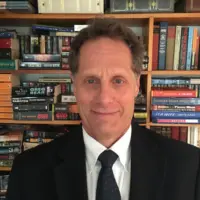
Ken Schatz
Interim CEO
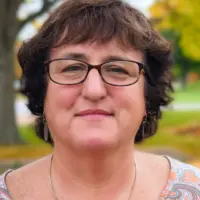
Wanda Audette
Director of Adoption
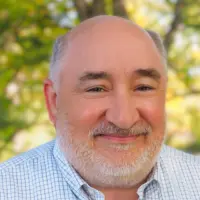
Timothy Keefe
CFO
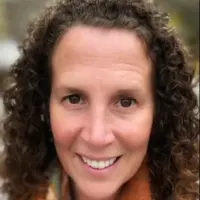
Kim Laroche
Director of Parent Child Center Services

Yvonne Lockerby
Director of Operations
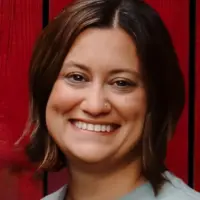
Sam Rhoads
Director of Clinical Treatment Services
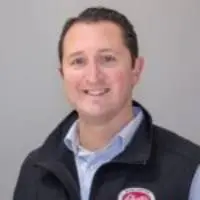
Darren Springer
Chair

Karen Vastine
Vice Chair
Contact Information
76 Glen Road
Burlington VT, 05401